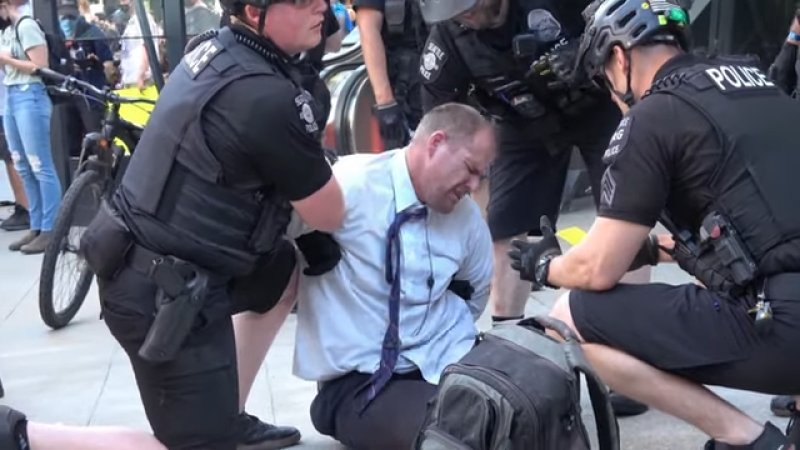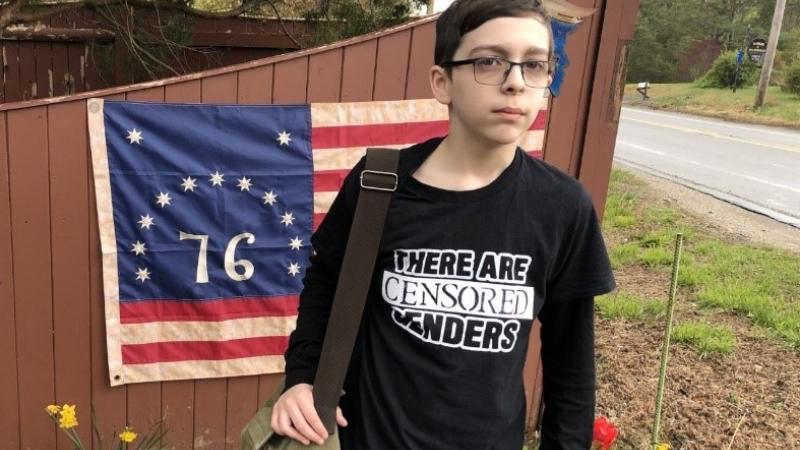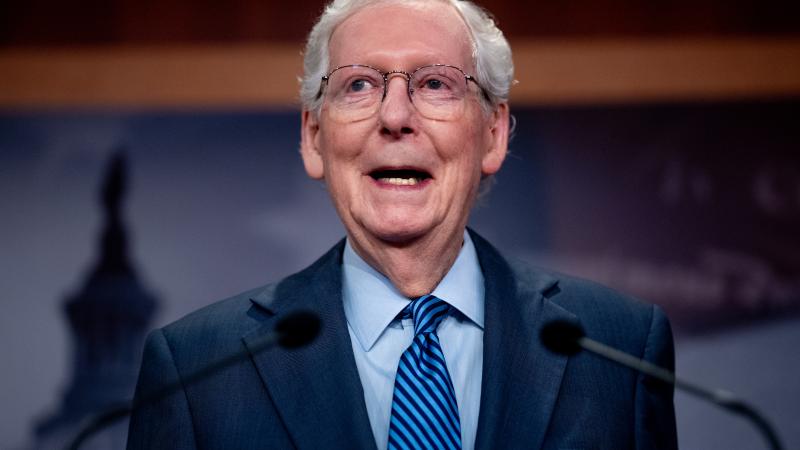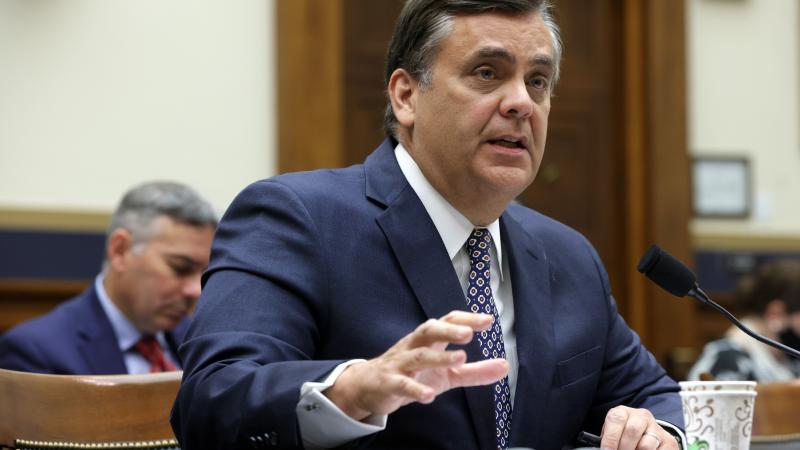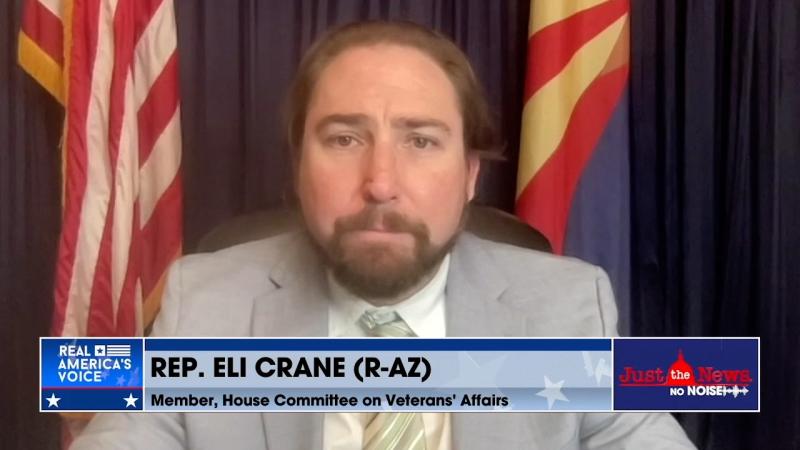Professor exonerated by university after lamenting 'people get their feelings hurt so easily'
Coastal Carolina disputes that it punished professor by reassigning him to non-teaching duties after students demanded his firing.
A theater professor removed from the classroom for telling the department he's "sad people get their feelings hurt so easily" has been reinstated effective next semester, following intervention by a civil liberties group.
Coastal Carolina University and Steve Robert Earnest disagree on how to characterize its action toward him in response to a student boycott and campaign to get him fired, and even whether he agreed to removal.
The taxpayer-funded institution claims he was "reassigned" to non-teaching duties "based on University need," while Earnest claims he was facing termination before the Foundation for Individual Rights in Education (FIRE) gave him a free lawyer.
Earnest credited FIRE with preventing CCU from forcing him "out of my career of over 25 years." He told The College Fix he was "happy but unsure" about the resolution. "I am aware that there may yet be an angry mob still out there and I have been advised to take precautions."
The professor made the flippant remark about hypersensitivity in an email chain stemming from an apology to nonwhite students from the department's Diversity, Equity and Inclusion (DEI) Committee Sept. 17.
Students had panicked when they walked into a classroom and saw the names of nonwhite students and their races written on a whiteboard, student Kelis Herriot told ABC 4 News.
The list was written by a black student in a conversation with another black student and Susan Finque, the department's "artist-in-residence," because they were lonely in the department and wanted to connect with other nonwhite students, Finque told the news station.
The DEI committee said the lack of context could be "dehumanizing and hurtful" for those students whose names were listed, and the incident "should have never happened." The committee said it would discuss "the gravity of the situation" with faculty.
Finque took personal responsibility in the email chain, saying she helped create the list. Not erasing the board when she left was "THOUGHTLESS AND CARELESS," she admitted.
Earnest responded in the chain, "I dont think its a big deal," wondering how students "going into Theatre" could get so easily offended. Student Jihad Levermore retorted that Earnest was "far too old to be behaving this way."
Responding to Levermore and other students who sent him "hate mails" that he was "just defending our guest artist," Earnest said, "I appreciate all of your attacks," according to FIRE's legal warning letter to CCU Sept. 29.
Dozens of students boycotted classes in response, wearing all black and protesting in a courtyard, ABC 4 News reported. Earnest's dean, Claudia Bornholdt, told him Sept. 20 not to come to his classes — an unconstitutional chilling effect, according to FIRE.
'Major disruption'
FIRE went public a few weeks later after CCU had failed to respond. "A professor stands to lose his job for not being sufficiently mad about something that wasn’t meant to cause anger in the first place," said Ronnie London, vice president of its Faculty Legal Defense Fund.
What followed is heavily disputed. In her "initial phone conversations" with her university counterpart, Earnest's lawyer Ruth Smith said CCU conveyed "they were not going to let him stay in any capacity," FIRE spokesperson Katie Kortepeter told Just the News.
Nov. 11 and Nov. 16 emails between Smith and CCU counsel Carlos Johnson document their disagreement over the takeaway from those conversations.
"Is CCU terminating Professor Earnest's [sic] or not?" Smith asked, saying the university had first asked Earnest for the "terms" of his departure and then argued his removal was not "punitive" and claimed he could return this spring.
While CCU never claimed Earnest was coming back in the spring, he's not in "termination proceedings" because he's making his "full salary" in his reassigned non-teaching duties, Johnson wrote. Both parties, he suggested, must consider the "potential disruption" from students if he returns.
Johnson recounted "two potential courses of action" they discussed: Earnest "voluntarily moving on from CCU" — a sabbatical followed by retirement — or CCU contributing "additional years to his State Service Time" so Earnest could retire at the academic year's end.
Five days later Johnson accused Smith of mischaracterizing their communication. Reassignment is "not a punitive employment action" as long as Earnest gets his full salary, so it's not clear "whether this matter is even eligible for a grievance," he said.
Apparently for the first time in their written communications, Johnson specified the basis of CCU's investigation. The professor "interjected himself into a discussion between other faculty members and students and made comments that caused a major disruption to CCU's educational environment," possibly violating the ethics code and "endanger[ing] the welfare" of students.
"As you and I have discussed multiple times, the University's review is ongoing because, as a courtesy, the University was working with Dr. Earnest to explore his retirement options," Johnson wrote.
Smith shot back the next day that Johnson had ruled out Earnest staying at CCU in any capacity, even "dusting books in the library." Johnson "hinted" CCU would open more investigations and interfere with the professor's future job search if he didn't voluntarily leave, she claimed.
The university's counsel is only denying these statements because it "created a public relations problem" for CCU, Smith alleged. Earnest denies CCU's claim that he agreed to be suspended, she said, which is "punitive" regardless of whether he's still being paid.
Earnest had a virtual meeting with Dean Bornholdt later that day, and a Nov. 18 "letter of resolution" from her confirmed he had "not been suspended" or disciplined. His reassignment was "based on University need."
That said, CCU determined his comments in the email chain will not be punished "at this time" and he's expected to return to the classroom this spring, Bornholdt wrote.
CCU responded to a query from Just the News by providing a lengthy Nov. 18 statement from Provost Daniel Ennis, claiming the university has suffered "negative media attention" from "several inaccurate statements" regarding Earnest.
Contradicting Smith, the provost said Earnest agreed his reassignment was "best given the students' anger and frustration at the time" and that the professor's research and service duties were "expanded" while he was under investigation.
Ennis reiterated Earnest was not reassigned for "criticiz[ing] a protest" but for having "unnecessarily interjected himself" in the email chain that started with the DEI committee's apology. His comments "inflamed the already tense situation" by "directly" criticizing students who raised "a legitimate concern."
Interpreting Earnest's comments through the lens of free speech "is a misplaced distraction to the real issue CCU faced — a major disruption to the academic environment," Ennis said. CCU will "never tolerate offensive behavior, harassment, or bullying."

